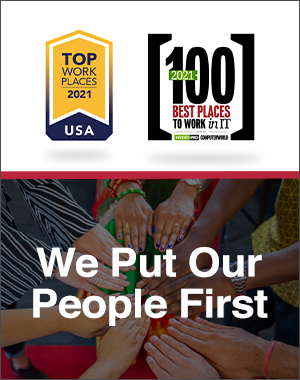The last topic in the top 10 risks series, highlighted by the Texas Association for Home Care and Hospice and Liles Parker PLLC, is employment issues.
The increasing demand for home health services combined with the ongoing challenge of hiring qualified staff, it is not surprising that agency owners identify employment issues as a growing concern. In overseeing office staff and clinicians, agency owners must protect both their business and employees by implementing industry standards for employment. Two resources minimize discrimination and protect employment standards, the Fair Labor Standards Act and Equal Employment Opportunity Commission.
What is FLSA?
The Fair Labor Standards Act of 1938 (FLSA), also known as the Wages and Hours Bill, is a federal statute that introduced the forty-hour work-week, established a national minimum wage, guaranteed time-and-a-half pay for overtime in certain jobs, and defined and prohibited “oppressive child labor” standards. The FLSA requires most private and public employers, with at least $500,000 of business or gross sales per year, to pay covered non-exempt employees at least the federal minimum wage and overtime pay for all hours worked in excess of 40 hours during a standard work week.
Exclusions from FLSA Coverage
As an agency owner, it is critical to consider each of the following exclusions when negotiating employment and how they impact your business:
- Exempt or Nonexempt status is determined by how much an employee is paid, how they are paid and what kind of work they do. Overtime is paid to those who are nonexempt, whereas exempt employees do not qualify for overtime pay.
- Benefits and/or Workers Compensation. FLSA does not require payment of wages for time not worked, such as vacations and sick time, but allows flexibility for employers to reach an agreement with employees. However, Workers Compensation is a form of insurance for wage replacement and medical benefits for injured employees.
- Employee or Independent Contractor. The IRS has varying degrees of contractors, but the general rule is if the payer (the agency) has the right to control or direct only the result of the work and not what will be done and how it will be done, the individual is considered an independent contractor. However, if the payer (the agency) has the right to control the details of how the services are performed, the individual is considered an employee. Status will also impact whether taxes are deducted directly from the paycheck or if the independent contractor will be responsible.
What is EEOC?
The Equal Employment Opportunity Commission (EEOC) is an agency of the government, created by the Civil Rights Act of 1964, to interpret and enforce federal laws prohibiting discrimination against a job applicant or an employee because of a person’s race, color, religion, sex (including pregnancy, gender identity and sexual orientation), national origin, age (40 or older), disability or genetic information. It is also illegal to discriminate against a person who has complained about discrimination, filed a charge of discrimination or participated in an employee discrimination investigation or lawsuit.
Agencies with at least 15 employees are covered by the EEOC laws and laws apply to all types of work situations, including hiring, firing, promotions harassment, training, wages and benefits.
As agencies continue to grow to meet demands of an aging population, it is critical that employment issues are discovered early and resolved. Whether deciding to define individuals as independent contractors or employees, or better educating your staff for non-discriminatory hiring practices, it is important that agency owners are well versed in current industry employment trends to help ensure success and ensure efficient patient care.


